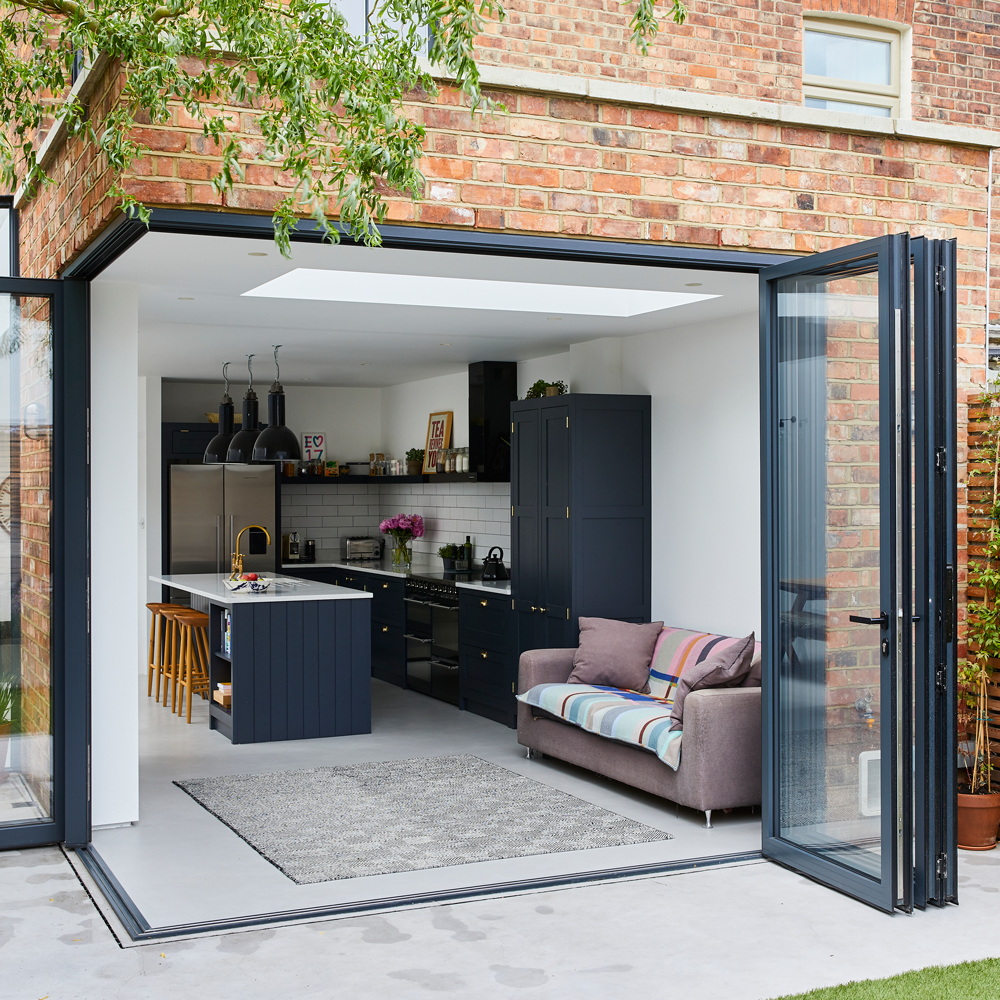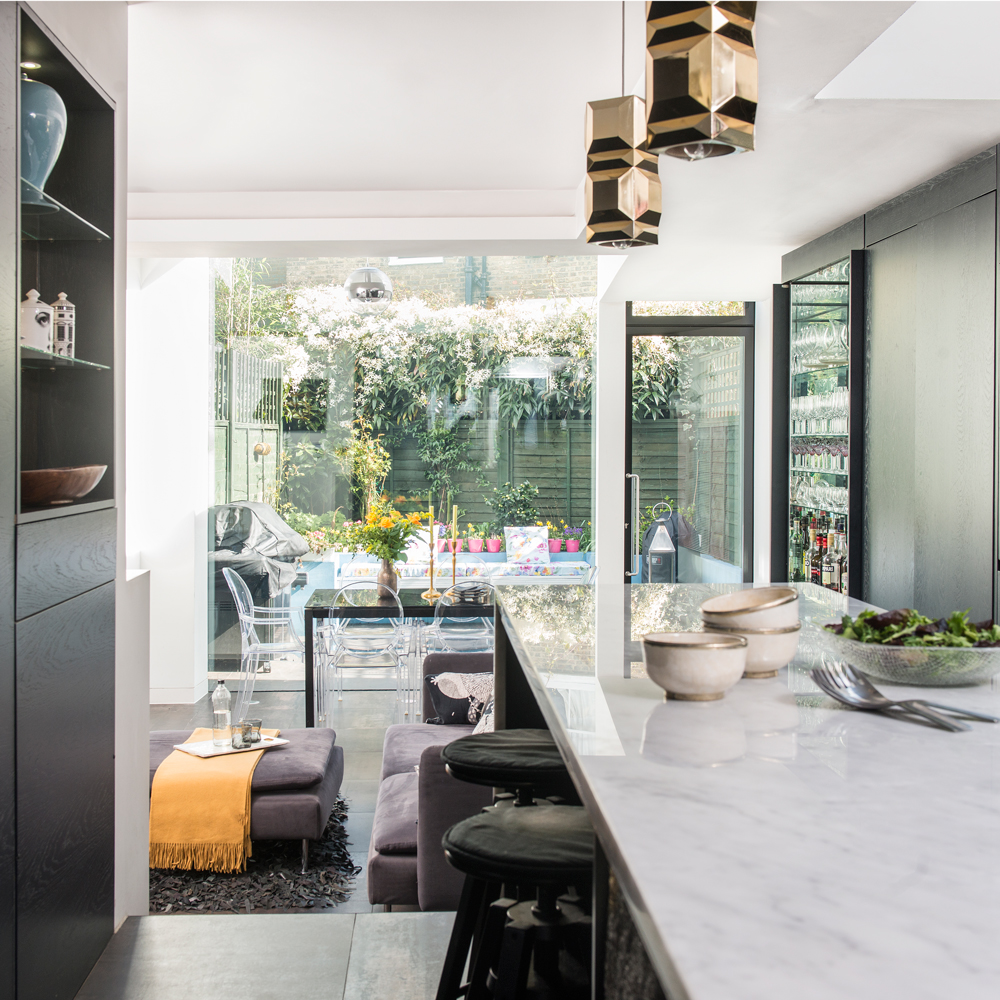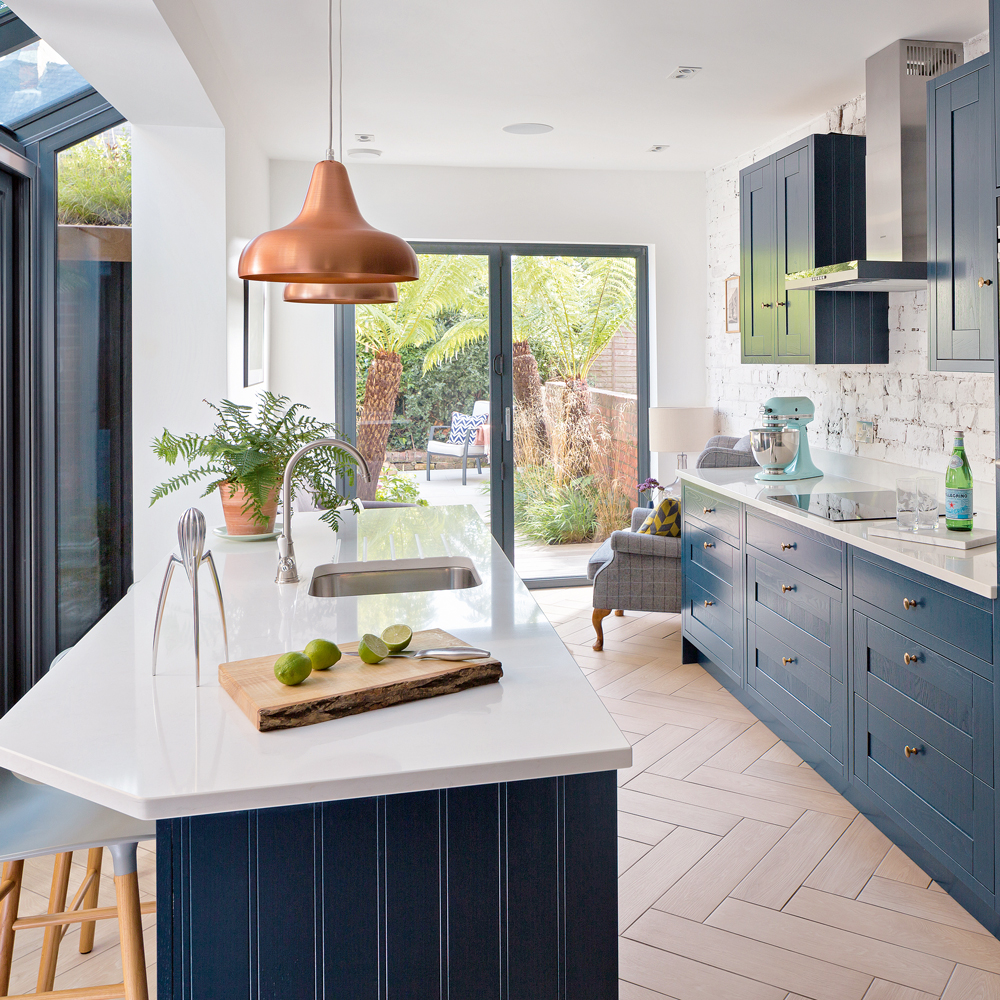Is it better to extend or move house? Property expert shares the three deciding questions you need to ask
Property experts offer helpful tips to help you decide if it's better to extend or move
Is it better to extend or move house? Deciding between building an extension on a house to better match your needs or just moving on to your next home can be tough.
Both can be costly and disruptive options, but each can also have its advantages. One thing is certain - if you're wondering about extending or moving, you need something from your home that it can no longer provide as it is.
Related: Extension ideas for small houses to maximise limited living space
Especially now that lockdown has forced us to spend all our time at home, it's natural that some of us feel that we've outgrown our homes and need more from them. But how do you know when modifying your existing home is feasible, and when you should just start looking for your next home? The experts at regulated property buyers GoodMove the three most important questions to ask yourself if you’re struggling to decide whether to extend or move.
Is it better to extend or move house?
1. Will an extension add value to your home?

Deciding whether you should extend should be based on whether an extension is right for your specific home. An inappropriate or poorly executed extension can reduce the value of your home, should you choose to sell in the future.
Ross Counsell, Director at GoodMove, says: 'It’s important to remember that exterior work is going to impact the land you already own so you need to take note of what you’re gaining as well as what you’re losing.'
Luckily, there are types of extension projects that are almost guaranteed to be beneficial to both you and your house value. Ross says that 'an extra bedroom can increase your home’s value by 15 per cent, an interior loft conversion may add up to 21 per cent. If you don’t necessarily have the exterior space, building a basement can add an extra 15 per cent.'
Sign up to our newsletter for style inspiration, real homes, project and garden advice and shopping know-how
However, with an added house value comes a reduction in the number of people who will be able to buy your home, which is something you need to bear in mind. 'Extending your home might allow you to demand a greater asking price, but ultimately limit your buyers', cautions Ross.
2. Can you afford an extension?

Ultimately, only you can answer this question, and the answer will largely depend on how long you're planning to stay at your current property.
'If you don’t see yourself living in your current home long-term then it might be worth second-guessing whether an extension is even worthwhile,' says Ross. 'The average cost to build at the lower layer of your home can be anywhere between £1200-2000+ per square metre, depending on your location.'
'Not only that, but add in the cost of planning permission, which can be over £200, as well as any unforeseen circumstances, and you could be looking at a pricey project.'
3. Can you buy a new home on your budget?

Outgrown your current home but don’t want to go through the building or extending process? It might be the right time for you to move. The best way to decide whether it's time is by performing a simple cost benefit analysis.
'It's important to establish your budget based on the equivalent value of your current property plus the proposed hypothetical cost of an equivalent extension,' explains Ross. 'This allows you to enter the market with a clear idea of what you can actually afford, and you may even realise that it might be worth investing in an extension instead.'
If you're planning to move and then extend the new place, 'it might be worth checking whether your plans will be permissible according to planning laws.'
Both decisions come with pros and cons in the end, and you should carefully weigh your needs against your future selling prospects before making the decision.
Related: The cost of moving house – and how you can make savings
Ross concludes that 'neither is necessarily better than the other and it’s a matter of personal preference as well as your financial situation. Both are big decisions, so if you’re stuck and unsure which is the better option for you then it is worth taking the time to weigh up the pros and cons of what you would be losing and gaining during either process.'
Anna Cottrell is Consumer Editor across Future's home brands. She moved to the world of interiors from academic research in the field of English Literature and photography. She is the author of London Writing of the 1930s and has a passion for contemporary home decor and gardening.